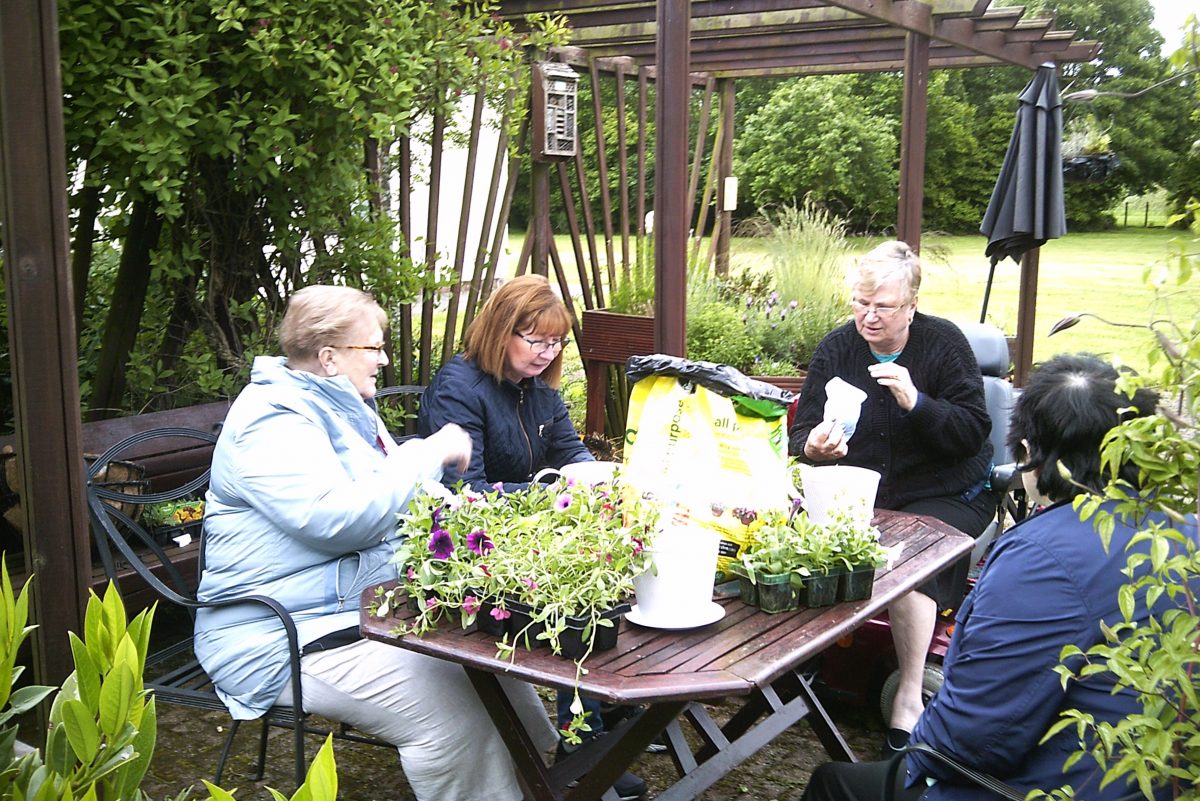Turning to the calming, restorative effects of tending to plants, vegetable patches and lawns can have huge wellbeing benefits – both physical and mental.
Here, we unpick a few of them…
Why is gardening good for our mental health?
The mental health benefits of gardening are widely documented. The National Gardens Scheme commissioned the King’s Fund to complete a research project into the mental benefits of gardening. Their findings showed gardening can reduce feelings of depression, loneliness, anxiety and stress. Being in nature, or even just watching nature out of a window, can have a neurological impact on our brain chemistry and make us feel better.
Gardening helps us to be in the here and now. We know anxiety worsens when people focus on the past or worry about the future. But being in and around the garden and the ever-changing magic of nature helps us to focus on what is happening right now and appreciate that moment. Also, gardening brings with it responsibility and purpose, along with the routine of nurture and care. Gardens need attention, plants need watering, birds need feeding. Responsibility is good for your mental health, as it gives you a sense of worth and purpose to your days.
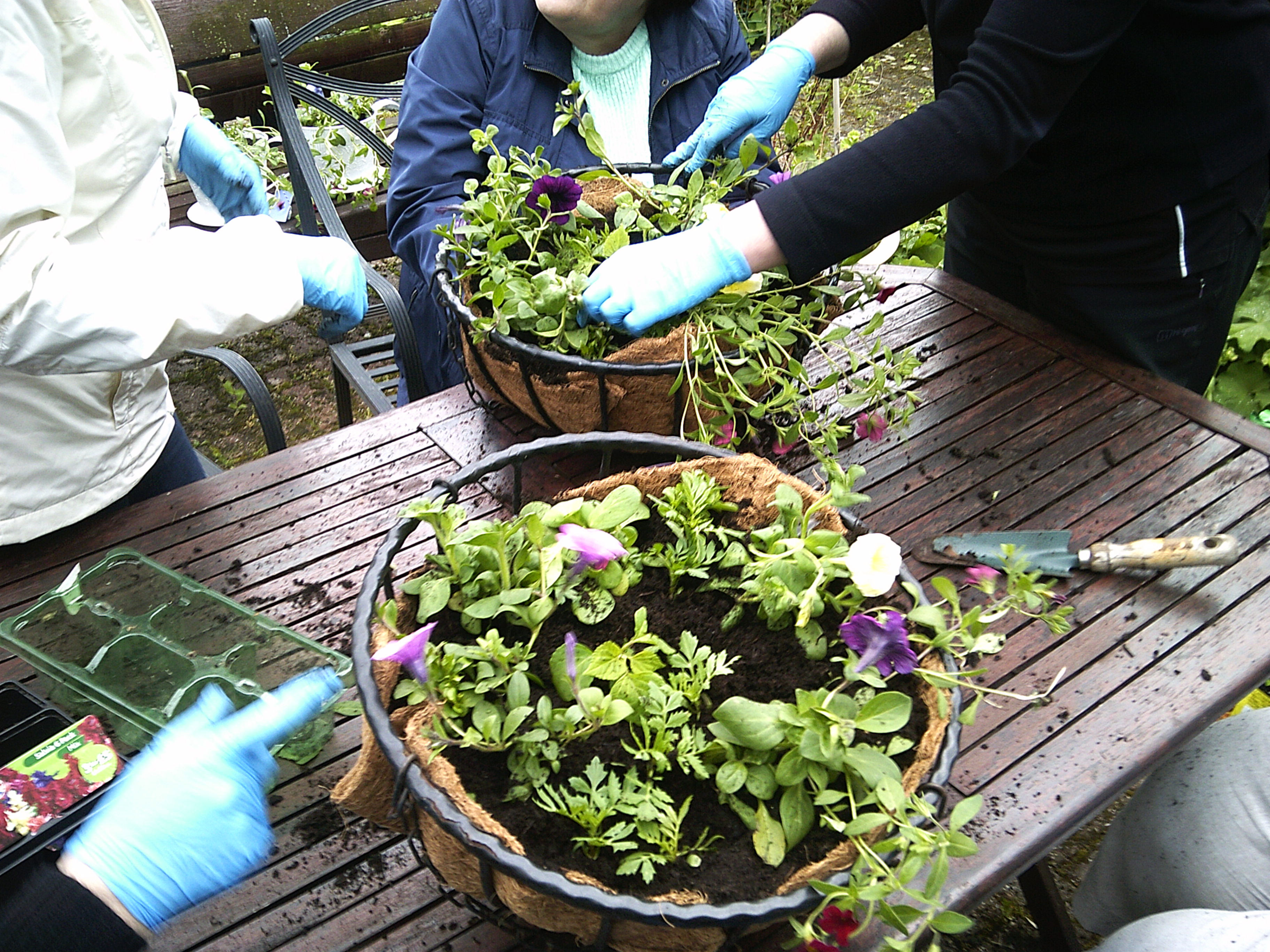
The maintenance of a garden helps to put us back in control when other things may be making us feel powerless. We can plan how to arrange our vegetable patch, decide what plants can be sewn, when flowers will need dead-heading and where we’re going to place hanging baskets to make the most of the summer sun. The satisfaction of seeing a garden you’ve tended blossom and grow can be extremely therapeutic.
Stress-busting tips for the garden:
- Cut the grass. It may sound simple, but the sight of a freshly-mown lawn is incredibly satisfying. Not only does it smell fantastic, but it’s also an excellent physical workout, so releases endorphins to feel good.
- Plan for the long haul. Sewing seeds will give you a restorative focus and something to nurture. Think about what colours you’d like your garden to be.
- Tidying isn’t just for the house. Got a load of pots hanging around or children’s toys scattered everywhere? A tidy garden has just the same benefits as a tidy house, so take half an hour to clear the clutter away for a great sense of achievement.
- Work it into your routine. During hot weather, gardens need watering. Take a moment for some quiet reflection at the end of each day, just you and the watering can to tend to your plants and process the day’s thoughts. Or start your day with a quick tour of the garden to deadhead or pull out pesky weeds.
- Garden to eat. You can grow many herbs in a pot in your kitchen, which has the added bonus of meaning they’re at your finger tips for when cooking. Grow basil, thyme, chives or rosemary and enjoy their benefits for months. If you’ve got space, consider a vegetable patch, or just pick up some tomato plants to grow in pots.
- Get the family involved. Gardening isn’t only for adults to enjoy. Explain the process to your children and give them a plant of their own to care for. Sunflowers are great for big gardens, or even some herbs or cress on a kitchen shelf can bring the outdoors indoors.
- Work out your frustrations. There’s nothing like venting your anger by taking a spade to a tree root or a pair of shears to some brambles. Had a stressful day? Head outdoors and see if anything can be hacked at or dug up. You’ll be surprised how much better you’ll feel afterwards.
- Enjoy nature. Step outdoors, take a seat and see what you can hear and see as nature goes about its daily life. Enjoy the sounds of the bees buzzing around your lovingly-grown flowers or the birds singing to each other. Close your eyes and breathe in and out, smelling all the lovely earthiness of your garden. Sit and watch birds making nests and looking for food for their young. Set up a hedgehog watch (without disturbing them) or make a note of what wildlife is visiting your garden.
Why is it so good for our physical health?
Working on your garden is an excellent way to get all-round exercise for improving strength, endurance and flexibility, as well as reducing levels of obesity and the risk of high blood pressure, heart diseases, diabetes and strokes. Three to four hours of gardening can burn as many calories as an hour at the gym, and releases the ‘feel good hormone’, endorphins, which make people feel happy and relaxed. It also has a positive impact on your mental health, lowering stress and improving sleep, as well as aiding weight loss which helps with self-esteem.
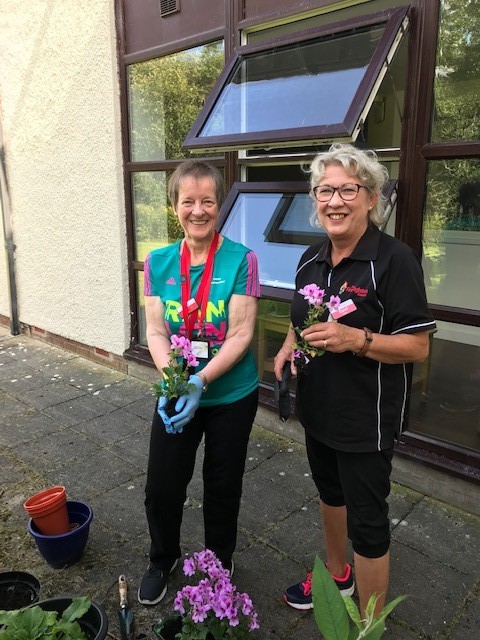
There is also evidence to suggest gardening may help with falls prevention, for those of us with mobility or balance issues, as it helps to maintain a good gait. It also has benefits for dementia prevention and cognitive decline (but it’s important to note, you should seek medical advice before undertaking any strenuous garden projects if you’re in any doubt).
Can you garden if you have a disability?
Gardening can be difficult when you have a disability, but there are organisations that provide advice on starting or continuing to garden for disabled gardeners, such as Thrive’s Carry On Gardening.
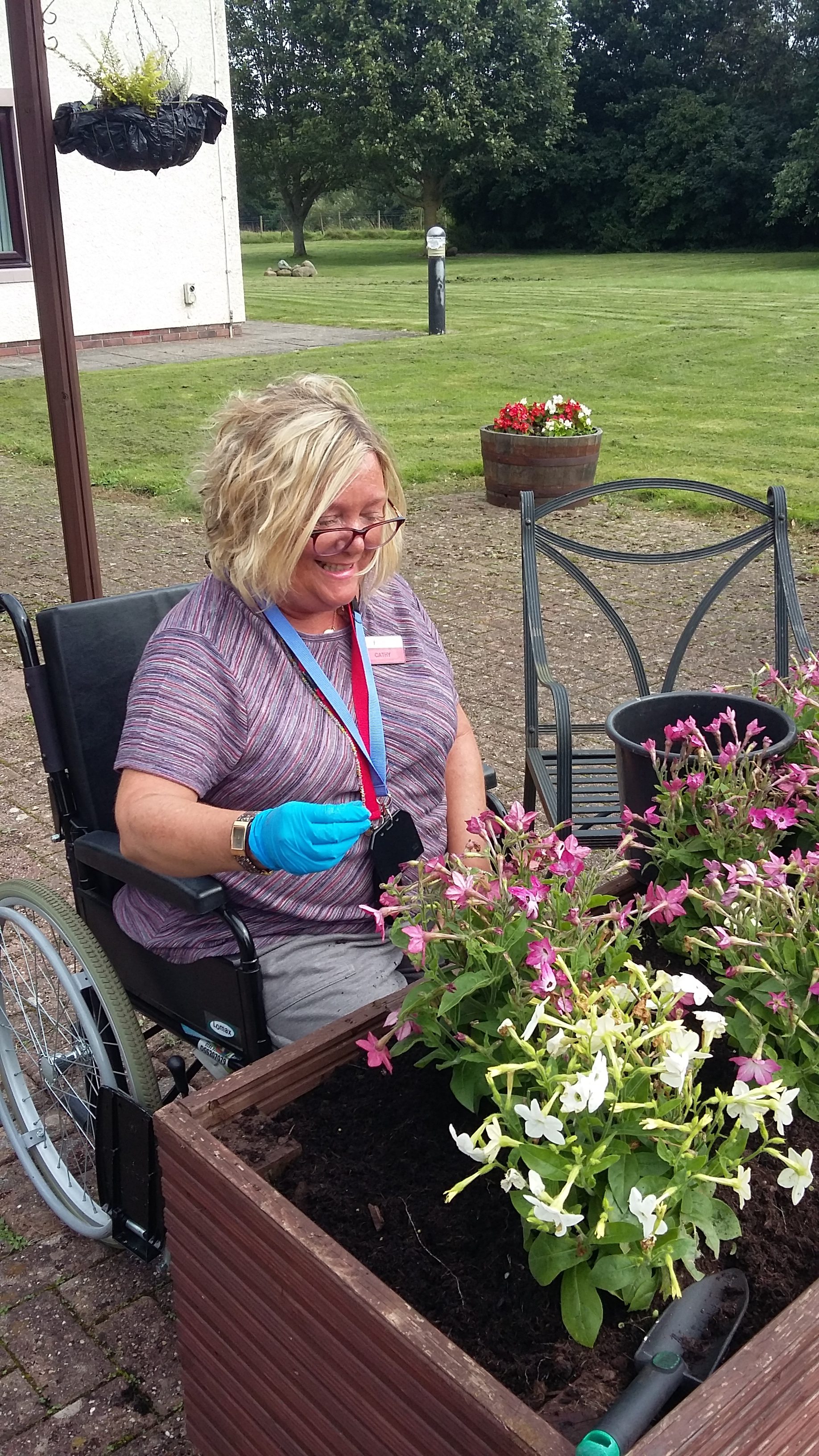
Thrive is a charity that is dedicated and passionate about the benefits that gardening and spending time in nature can bring. Damien Newman, Thrive’s Training, Education and Consultancy Manager visited Jubilee House previously to consult with us on the green spaces, full of advice for how they can support us to ensure beneficiaries can benefit from the health and wellbeing gardening provides.
As a nursing service, we regularly use our green spaces at Jubilee House to support physical and psychological recovery. Many of our beneficiaries have neurological impairments, and our outdoor space is a good environment to facilitate the maintenance and relearning of skills. We’re often told that people find it so enjoyable that they don’t realise just how hard they’re working, but nicely complements the focus of more defined time in the gym for example.
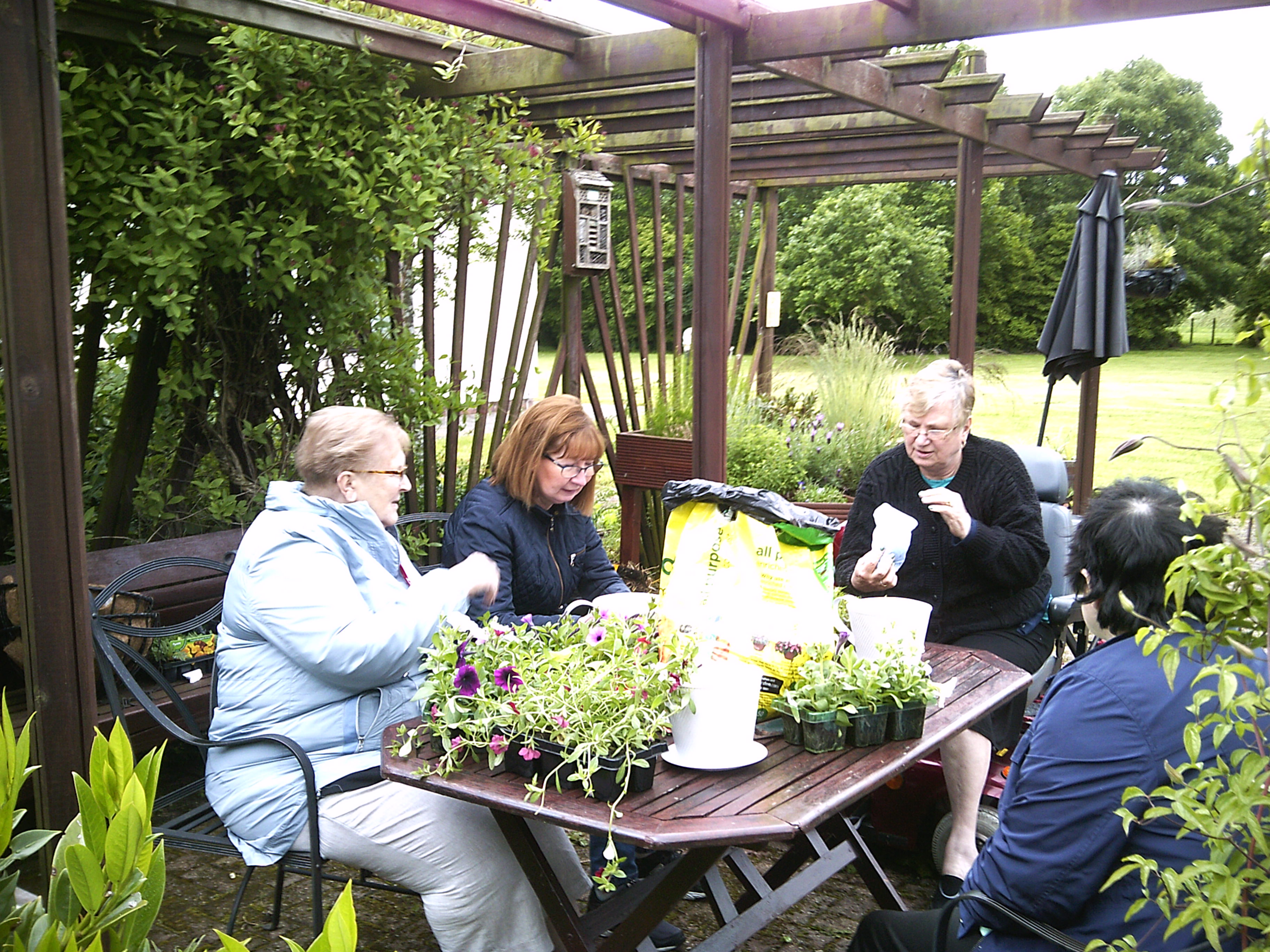
What if you don’t have a garden?
Of course, I appreciate not everyone has access to a garden, but that doesn’t mean you can’t enjoy the benefits. The RHS offers alternatives on how to garden without a garden, including some fun activities to do at home to cultivate and grow plants. Create a window box or grow herbs in your kitchen, or research what indoor plants will be most suitable to your home.
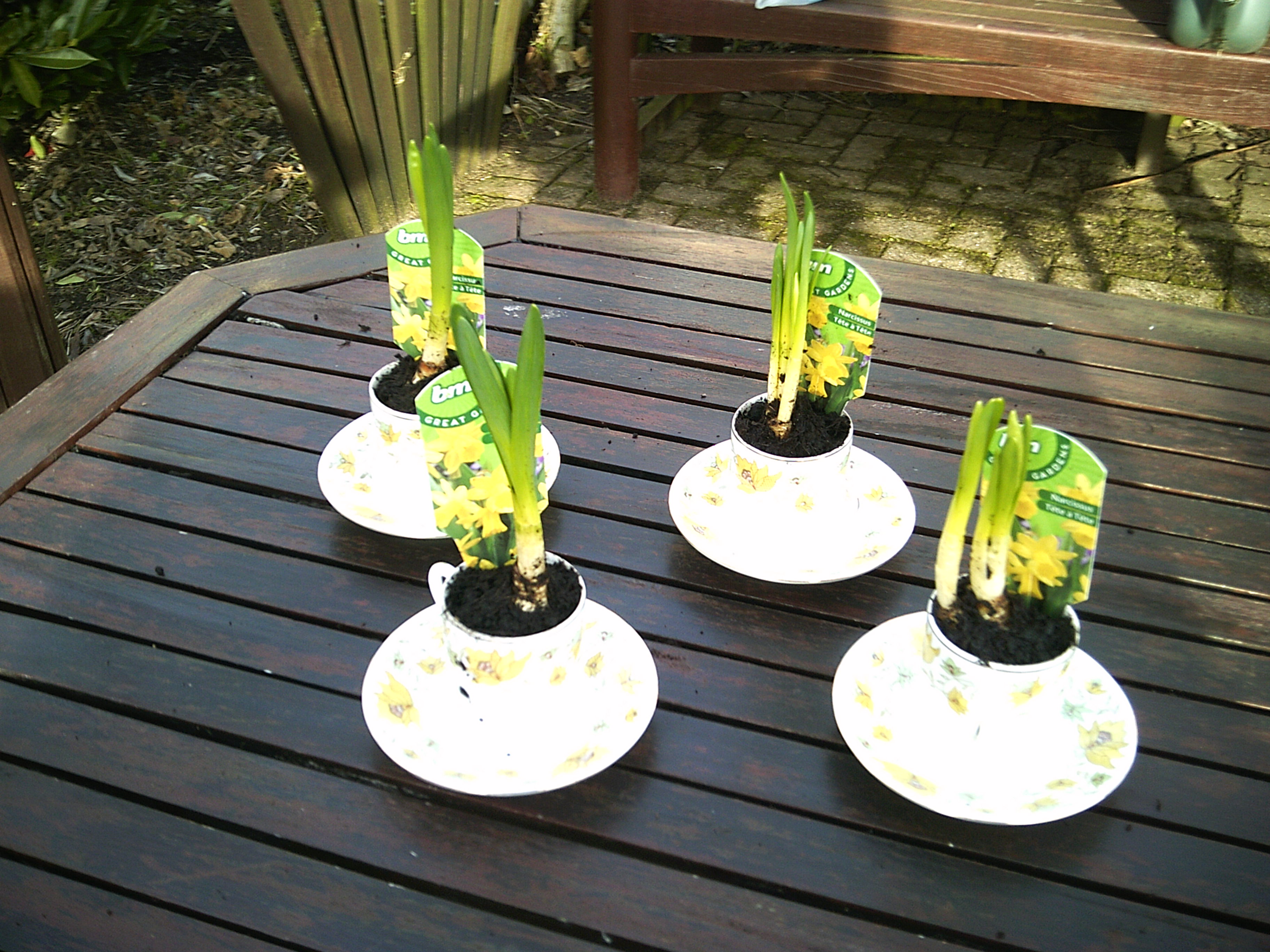
If you don’t have a garden of your own, find some outdoor space you can visit so you can find a place of calm to de-stress and relax.
Remember to let us know how you get on by joining one of our groups in My Fire Fighters Charity and share a photo or video. Register now below:

